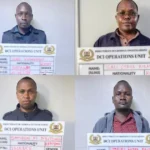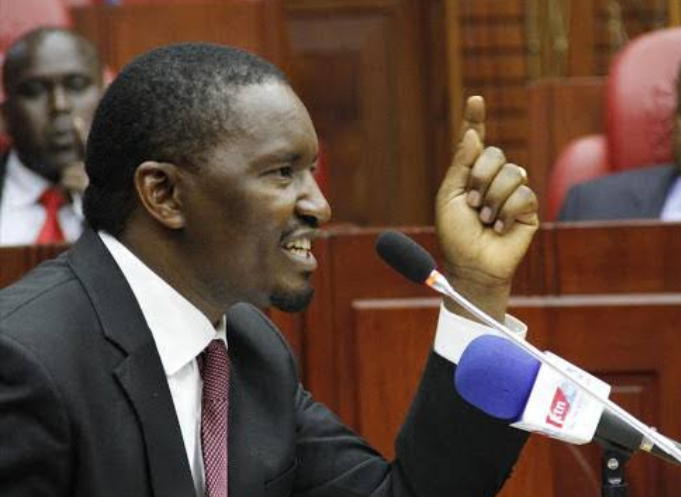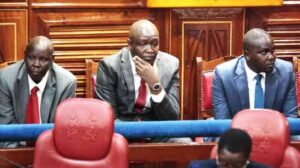Laikipia East member of the National Assembly, Hon. Mwangi Kiunjuri, has made serious allegations regarding the recent attack on Parliament.
According to Kiunjuri, four politicians from the Mt. Kenya region orchestrated the protest by bringing 20,000 demonstrators to the capital, with 3,000 coming from Juja.
He further asserted that the funding for this operation came from a government office, which is known to the authorities.
“The day Parliament was attacked, four politicians from our region brought 20,000 protesters. 3,000 came from Juja.
The office that offered the funding is known by the government and, more importantly, the money was from the government,” said Mwangi Kiunjuri.
Kiunjuri’s statement raises serious questions about the involvement of high-ranking officials and government resources in what appears to be a politically motivated attack on the nation’s legislative body.
His revelation suggests that there is awareness within the government about the source of the funding and the identities of those responsible for organizing the protest.
The gravity of Kiunjuri’s claims cannot be understated. If true, it implies a significant breach of trust and misuse of public funds, orchestrated by individuals within the government to disrupt parliamentary proceedings.
This allegation casts a shadow over the integrity of the political system and suggests deep-seated issues within the administration.
The key question now is whether President William Ruto is aware of these allegations and, if so, what actions he plans to take.
Given the serious nature of the claims, the public and political observers will be closely watching the President’s response.
Inaction could be perceived as tacit approval or complicity, while decisive action could restore public confidence in the administration’s commitment to transparency and justice.
The coming days will be critical in determining the administration’s stance on this issue.
Will President Ruto address the allegations head-on and initiate investigations to hold those responsible accountable? Or will the claims be met with silence, further fueling speculation and mistrust among the public?
Kiunjuri’s allegations also underscore the broader challenges facing Kenya’s political landscape.
The involvement of significant numbers of protesters, allegedly funded by government sources, highlights the extent to which political rivalries and conflicts can escalate.
It points to a dangerous trend where political disagreements are increasingly being played out through public demonstrations and unrest, rather than through dialogue and democratic processes.
It will be imperative for the government to demonstrate a commitment to upholding the rule of law and ensuring that those responsible for any wrongdoing are held accountable.
Transparency and accountability are essential in maintaining public trust and ensuring that political power is exercised responsibly.
Mwangi Kiunjuri’s claims have thrown a spotlight on a potentially explosive issue within Kenyan politics.
The response from President William Ruto and his administration will be crucial in shaping the narrative and addressing the underlying issues that have been brought to light.
The nation now waits to see whether these allegations will lead to significant political fallout or be addressed in a manner that reinforces the principles of justice and accountability.





















Add Comment